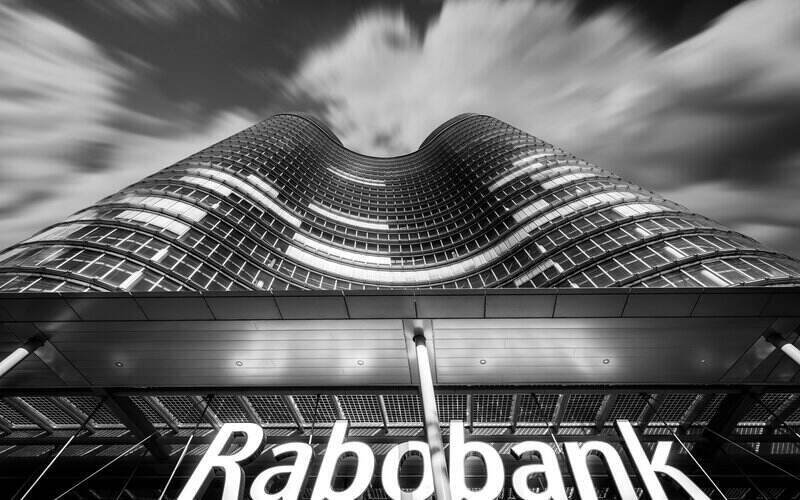Rabobank has hiked the maximum rate on offer on its High Interest Savings Account (HISA) by 15 basis points to 5.75% p.a. for the first four months.
That sees it maintaining the top position as the highest rate available on the Aussie market right now, once more besting the 5.55% p.a. maximum rate offered on a ME Bank HomeME account.
However ME Bank's rate is ongoing, while Rabobank's falls to a lower ongoing rate after four months.
Rabobank’s move came on the back of the Reserve Bank of Australia (RBA) board’s decision to increase the nation’s cash rate by 25 basis points to 4.35% last week.
Rabobank head of online savings Julie Blanchard said the newly increased rate marks the highest available on at-call bank deposit products in many years.
“Our HISA introductory rate is higher than the current annual inflation rate of 5.4%,” she said.
Other inflation-beating (anything better than 5.4%) accounts include:
- ME Bank's HomeME at 5.55% p.a.
- ING's Savings Maximiser at 5.50% p.a.
- Teachers Mutual Bank's (and subidiaries) Target Saver at 5.50% p.a.
- MOVE Bank's Growth Saver at 5.50% p.a.
- Macquarie Bank's fixed intro account at 5.50% p.a.
All of these accounts have different deposit criteria to attain the maximum rate.
How to get Rabobank's 5.75% p.a. savings account
The 5.75% maximum interest rate on offer by Rabobank is available for balances of under $250,000.
It’s made up of a 4.40% p.a. standard variable interest rate and a 1.35% p.a. bonus rate, available for the first four months of a new customer opening an account.
Rabobank's standard variable base rate drops to 3.40% p.a. on balances of over $250,000, resulting in a maximum potential rate of 4.75% p.a.
Other market leading savings accounts include ING’s Savings Maximiser account, which promises savers 5.50% p.a. if they deposit $1,000, make five eligible card transactions, grow their savings balance each month, and keep the balance under $100,000.
Meanwhile, Macquarie will hike the interest rate available on its transaction and savings accounts by the full 25 basis points from tomorrow.
That will see its savings account’s introductory rate increase to 5.50% p.a. and the ongoing rate boosted to an unconditional 4.75% p.a.
Notably Rabobank's rate is variable, meaning it could move up with RBA rate movements, unlike Macquarie's intro account which is fixed i.e. it stays the same rate as when a customer opened the account.
Speaking of unconditional savings accounts, ANZ Plus offers the highest unconditional rate on the market.
Its Save account's rate was increased by 25 basis points to 4.90% p.a. today.
Could Aussies soon realise 6% p.a. returns on savings accounts?
Such moves have likely left many interest rate watchers wondering if the coming months could see banks offering a 6% interest rate on savings accounts.
It appears to be a real possibility, with many economists debating the likelihood that the RBA board will hike again in February.
If it does, it could encourage banks to bolster the rates on offer to savers, potentially by the full amount of a cash rate hike.
However 6% exists as somewhat of a psychological barrier; keen savers will remember it took quite a long time to see savings account rates over 5% despite the plethora of RBA hikes.
NAB, the first of the majors to predict November’s hike, is the only big four bank calling a February hike at this stage.
NAB chief economist Alan Oster expects a 25 basis point increase in the first meeting of 2024, bringing the cash rate to 4.60%.
Of course, if the cash rate were to be upped by 25 basis points and Rabobank were to pass on the full hike (neither of which is guaranteed), Australia could celebrate a 6.00% p.a. savings account interest rate.
CommBank economists, on the other hand, predict that 4.35% will be the peak of the cash rate, while those at Westpac and ANZ haven’t put forward a certain prediction yet.
CommBank economist Stephen Wu today noted that October’s unemployment read and recent wage growth data were both broadly in line with the RBA’s forecasts.
Thus, the release of data on inflation in October will be worth keeping an eye on when it is released later this month.
If it comes in higher than the market predicts, it could further expectations of a February rate hike.
Advertisement
Need somewhere to store cash and earn interest? The table below features savings accounts with some of the highest interest rates on the market.
Image by Rosie Steggles on Unsplash.







 Denise Raward
Denise Raward


 Harry O'Sullivan
Harry O'Sullivan